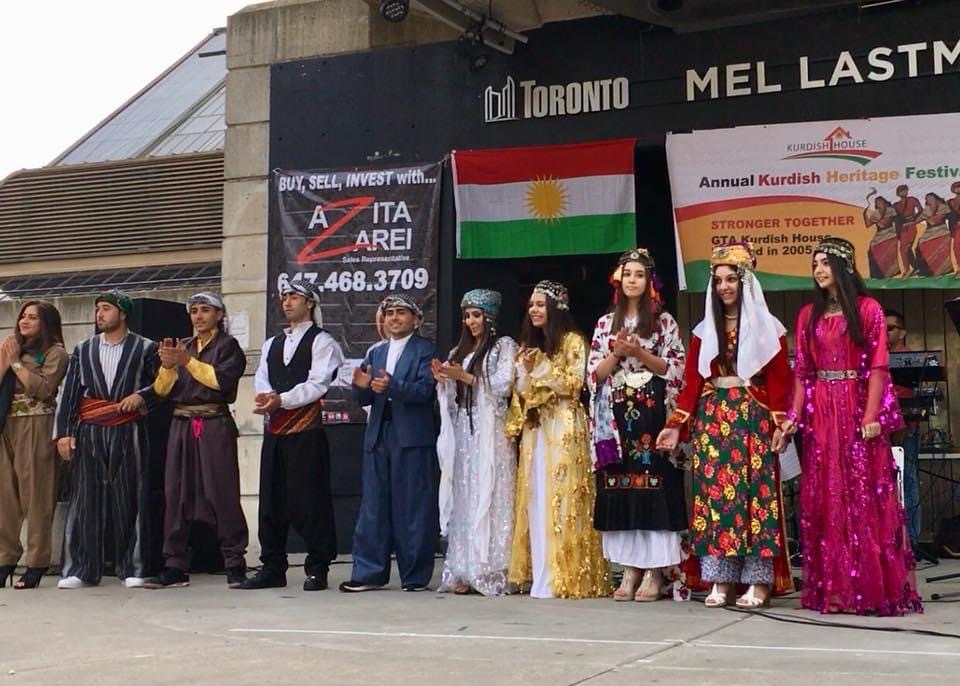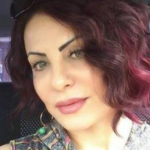د. کازیوە ساڵح
بە شێوەیەکی بەرفراوان کاتێک گوێ لە کوردی ڕۆژهەڵاتی کوردستان دەگرین ،بە فۆرمێک گوزارشت لە خوی دەکات کە مافەکانی خوراوە و داوای مافی مرۆڤ دەکات. بەڵام ئایە ئەو تەنها مافەکانی خوراوە؟ ئایە داوای مافی مرۆڤ دەکات؟ ئەگەر مافی مرۆڤی پێ بدرێت کێشەکانی چارەسەر دەبێت لە ناو ئێراندا؟ بۆ ئەوەی وەڵامی ئەو پرسیارانە بدەینەوە پێویستە سەرتا باس لە گرنگترین بنەماکانی مافی مرۆڤ و سەرچاوەکانی بکەین ، پاشان بەراوردی بکەین بە دۆخی کورد لە ڕۆژهەڵاتی کوردستاندا
بنەماکانی مافی مرۆڤ زیاتر لە یست و پێنج خاڵ دەگرێتە خۆی ، گرنگترینیان کە بە بێ بوونیان ژیانی مرۆڤ بە تەواوی لاسەنگ دەبێت بریتیە لە: مافی یەکسان مامەڵەکردن لەبەردەم یاسادا، مافی پەیڕەوکردن ئازادانەی ئاین ، خوێندن ، ڕادەربڕین و بیروباوەڕی ئازاد ، مافی ژیان و ئازادی کەسی و کولتووری و کۆمەڵایەتیەکان، دەستەبەرکردنی کار، مافی پاراستنی ژێنگەی تاک و دەستەبەرکردنی ئاسایشی گیانی. کورد لە هەر شەش پارچەدا ( بەردەوام ئێمە کوردی ئەرمینیا و ڕوسیا لە بیر دەکەین) بە بەشە نیمچە ئازدکراوەکەی باشوریشەوە خاوەنی ئەم مافانە نیە. هەندێ خاڵیش هەر لە دنیادا بوونی نیە. ئاشکرایە ئەم مافانە لە چوارچێوەی سیستمێکی دیموکراتیدا دەستەبردەکرێت و لە ژێر دەواری ئایدۆلۆژیەکی بەر تەسک ، عەشیەرت و ساندروۆمی سەرکردە و ئایندا جێگەیان نیە و ئامادەیان مەترسیە بۆ مانەوەی هێیز دیکتاتۆری نەک دەسەڵات.
ئەم جیاکاریەم لە ڕوانگەی هانا
ئارنت (١٩٦١) وەیە کە پێی وایە دەسەڵات پێویست و گرنگە چوونکە کاری دەسەڵات جێبەچیکردن
و بەرێوەبردن و ڕاوێژە، پێچەوانەی ئەمەش دەسەڵاتاکاری تاکڕەوانە یە[i]. لەم
ڕوانگەیەوە دەتوانین بڵێن ڕۆژهەڵاتی ناوەڕاست هەرگیز دەسەڵاتی بە خۆییەوە
نەبینیەوە بەڵکو هەمیشە ئەوانەی دەبوو ڕۆڵی دەسەڵات بگێڕن ڕۆڵێ دیکتاتۆری
تاکڕوییان گێڕاوە.[ii]
بەڵام ئەم ئارگیومێنتەوە و بۆچوونەکانی ئارنتیش پشت گوێ دەخەم چوون لە لایەک بە
نیازم تەنها جەخت لە سەر چۆنیەتی دەربڕینی داواکاریەکانی خەڵكی ڕۆژهەڵات بکەم و لە لایەکیش نامەوێت پەیپەری ئەکادیمی
بنووسم.
بە گەڕانەوە بۆ بنەماکانی مافی مرۆڤ
تێدەگەیەن مافی مرۆڤ لە شوێنێکدا بەرقەرارە کە یاسا تێدا سەروەرە، ئەم یاسایەش یەکسانی هاوڵاتیان دەپارێزێت. ئەم خاڵەش بنەمایە
بۆ هەموو بنەماکانی دی مافی مرۆڤ، بەڵام ئەم خاڵە لە ئێراندا بوونی نیە ، ڕادەیەک
لە هەموو وڵاتانی ڕۆژهەڵاتی ناوەڕاستیشدا
ونە. لەم دۆخەدا ئەگەر گروپی ئامانجکراو کێشەی مافی مرۆڤیشی هەبێت ناتوانێت
ڕووبەڕووی سیستمێک یان حکومەتێک
بکاتەوە باوەڕی بە سەروەری یاسا نیە. ئەو یاساییە مامەڵەی پێدەکات بۆ سەرکوتکردنی
تێگەشتنە لە ماف و سەروەری مرۆڤ نەک تەنها لە ناو ئێراندا بەڵکو بە هەر چوار دەوری
خۆیدا وەکو شێرپەنجە دەکشێتە نێو جەستەی ڕۆژهەڵات و دراوسیەکانییەوە. دەیان ساڵە شەرعیەتدان
بەم پانخوازییە لە لایەن ئەو وڵاتانەوە،
لە خۆیدا کۆششی خەڵکی ئێرانی بە گشتی سەختکردووە. بەڵام کۆششی کورد، لە گەڵ ئەوەی
خەڵکی ئێران تەواو جیاوازە. خەڵکی ئێران داوای مافی مرۆڤ دەکات، داوا دەکات لە
وڵاتی خۆیدا ئازادی کەسی و پۆشاکی هەبێت . ئەوەی کورد لە چوارچێوەی مافی مرۆڤدا
نیە ، بەڵکو کورد داوا دەکات چەکوشی جینۆسایدی لە سەر هەڵبگیرێت، ڕزگاری دەوێت لە
ستەم و کوشتن،لە برسیتەی و چەوساندنەوەی نەبڕاوە.
هەموو ئەو مافە بنەڕەتیانەی باسمان کردوون ، کورد نەیبووە و نیەتی وهەندێکیان
خەڵکی ئێران بە گشتی نیەتی تەنانەت ئەگەر کورد و فارسێکی هاوشاری لە یەک گەڕەک و
کۆڵانیشدا بن جیاوازە. چوون بۆ نموونە کاتێک مافی خوێندن و بە کار هێنانی زمان و پەیڕەوی
کولتووری بە زۆر لێدەگیرێت و لەوە زیاتریش کولتوور و زمانی نەتەوەیەکی دی دەدرێت
بە سەردا ئەوە پێ دەگوترێت توانەوە کە یەکێک لە فاکتەرە سەرەکیەکانی جینۆسایدە.
کاتێک کوردێک ئاسایشی گیانی نیە و بە ساکارترین هۆ دەکوژرێت و لە سێدارە دەدرێت،
بێ کار و برسی دەکرێت ئەمە بە هۆی کورد بوونەوەکەیەوەیەتی پێێ دەوترێت جینۆساید.
جاریەکی دی وەکو دەیان جار دەڵێم، ئەگەر
ئەم کارانە تەنها بەرانبەر یەک تاکە کەس کرابێت ، یەک کۆڵبەر بە هۆی ئاین و
نەتەوەو ئەتنیکەوە کوژرابێت جینۆسایدە. کورد لە جینۆساید وەکو کوشتنی کۆمەڵە کەسێک
زۆر تێگەشتووە، بەڵام جینۆساید لە کۆشتنی جەستەیی زۆر قوڵترە، زۆریش ترسناکترە. بە
پێچەوانەوە ، کوشتنە جەستەییەکە لە توانەوەی کولتوور و زمان و داگیرکردنی هۆشەمەندی و هزر و نەستی داگیرکراو کەم زیانترە.
چوون جینۆسایدی جەستەیی و توندوتیژی ڕاستەخۆ و بینراو لە ناوخۆدا ڕۆحی بەرگری و
ڕاپەڕین دروستدەکات و لە دەرەوەش هێزی پشتگیری دروست دەکات( بۆ تێگەشتن ئەو
بابەتانەی لە خوارەوە دانراوە بخوێنەرەوە). لەوەش زیاتر، جینۆسایدی جەستەیی
پاش کۆتایی هاتنی پرۆسەکە کاریگەریەکانی زووتر بنبڕ دەبێت وکەمتر خۆی بەرهەم
دەهێنێتەوە.
بابەتە بڵاونەکراوەکانی ڕاڤایل لەمکن[iii]،
داهێنەری چەمکی جینۆساید و بوونیادەنەری بنەماکانی تێگەستن لە جینۆساید، تەنانەت
" نێت" ی پشت کردارەکانی نێوان دوو هێزی نا هاوسەنگ، واتە یەکێکی بەهێز
و یەکێکی لاواز بە جینۆساید پێناسە دەکات. هەموانیش دەزانین نێتی نەک تەنها ئێران
و عێراق و تورکیا و سوریا، بەڵکو نێتی هەموو عەرەبی ، فارسی و تورکی قسەکەرکانی
جیهانیش چین. لێرەدا با واز لە هێزی دەرەکی و نیازەکانییان بهێنین. کەواتە تۆ
هەڵەیت داوای مافی مرۆڤ بکەیت لە دەوڵەتێک کە هێشتا جینۆسایدت دەکات. هاوڵاتیانی
ڕەسەنی کەنەدی وەکو کورد، بە زۆری جینۆساید داگیران ، پاشان کران بە گەمژە
و دڕندە، چەند سەدە پاش جینۆسایدکردنیان و
دەیان ساڵ پاش ددانپێدانانی ، هەتا سەرۆکایەتی جەستن تۆردۆ، بەردەوام جینۆسایدی
کولتوری ، خۆ کوژی لە ناوەخۆدا و بە دەستی
خۆیان بە شێوەیەکی بەرز بەرهەم دەهاتەوە و هێشتاش بەرهەم دێتەوە، دیارە ئەم بەرهەم
هێنانەوەش بەدەر نیە لە دەستی دەرەکی ، پێدانی هەموو ئەو ئامرازانەی دەتوانێت
جینۆسایدیان لە نێودا بەرهەم بهێنێتەوە ، وەکو کولتوور، چەک ( مۆڵەتدار و بێ
مۆڵەت) ، مادەی هۆشبەر و قاچاخچیەتی کە لە بەشەکانی تردا ، لە ڕووی یاساییەوە زۆر
بە توندی مامەڵەی لە گەڵ دەکرێت. پاش سەرۆکایەتی تورۆدۆ ، هەوڵیدا بە شێک لە مافە پێشیلکراوەکانیان و قەرەبووی
جینۆسایدەکانیان بکاتەوە ، ە بەوەی خوێندیان بۆ بکات بە خۆڕایی،پۆستی وەزیری
وچەندین کاربەدەستی باڵای دەوڵەتیان بداتێ ، لە هەموو زانکۆکاندا بەش بۆ
جینۆسایدەکەیان بکاتەوە، لە زۆربەی دەزگانادا فەندی تایبەت بە دۆز و کیشە و
جینۆسایدی ئەوان هەیە؛ بۆ وەرگرتنی هەر
کار و پۆست و فەندێک ئەوان مافی یەکەمیان هەیە، واتە ئەگەر سەدان کەس بۆ کارێک
داوای پێشکەش کردبێت و کەسێکی هاوڵاتی ڕەسەنی تێدا بێت ، کارەکە ، یان فەندەکە بە
ئەو دەدریت. ئەوان ساڵانە و لە کڕینی ڕۆژانەشدا باج نادەن و زۆر مافی دیش. بەڵام ئەمە لە سەروو مافەوەیە چونکە ئەوان ئێستا مافیان لە هەموو هاوڵاتیان
کەنەدی زیاترە، ماف و قەرەبووکردنەوەی ساڵانێ بێ مافی وەردەگرن. ئایە داوای ماف و
قەرەبووی بێ مافی سەد ساڵەت لە ئێران دەکەیت؟ لە ئەم هەنگاوەش کاتیك دەنرێت دەوڵەت دانی بە
جینۆساید و چەوساندنەوەکاندا نابێت ، و بە نیاز بێت مامەڵەیەکی جیاوازی لە گەڵ
بکات ، کە خەونێکی دوور مەودایە.
کەواتە کوردی ڕۆژهەڵات
لە ناوخۆدا، لە لایەک کێشەکەی لە گەڵ فارسدا ناخرێتە یەک بۆتەوە ، لە لایەک گوزارشتکردن
لە کێشەکانی وەکو مافی مرۆڤ لە سەنگی دۆزەکەی کەم دەکاتەوە.چوون ئەکرێت بەندەکانی
مافی مرۆڤ وپێشیکردنی مافی مرۆڤ جێگەی جینۆسایدی تێدا نەبێتەوە بەڵام جێنۆساید جگە
لە بەدنەکانی خۆی، جێگەی شەڕ دژی مرۆڤایەتی، مافی مرۆڤ و تاوانەکانی شەڕ و
جۆرەکانی دی کوشتنی تێدا تواوەتەوە. ئەمەش
مانای ئەوەیە کورد لە دەرەوە، بە تایبەت لە ئەوروپا، دەتوانێت لە هەموو ئەو
رێکخراوانەی کار لە سەر ئەو چەمکانە دەکەن نزیک بێتەوە. لە گەڵ ڕێکخراوەکانی مافی مرۆڤ ،
تاوانکەکانی شەڕ ، تاوانەکانی دژ بە مرۆڤایەتی لە ڕوانگەیەکی دییەوە بە کار
بهێنریت. ، لە بەر ئەوەی ئەم شۆڕشەی ئێستا بە شۆڕشی ژن ناسراوە هەموو دەزگا و
بوارانەی بۆ ژن و جەندەر لە دنیادا بوونیان هەیە
هەماهەنگی بکات. بەڵام لە هەمان کاتدا ، لەمانەش گرنگتر ، لە بەر ئەوەی
ئەزموونی ئەوان جینۆسایدە جیا لە فارس و زۆربەی نەتەوەکانی دی ناو ئێران، کۆمەڵێ
هەلی زیاتری هەیە و پێویستە لە ئێستاوە ئەو هەلانە بقۆزێتەوە. وەکو ئەوەی لە دادگا
نێو دەولەتیەکاندا سکاڵا لە سەر دەوڵەتی ئێران تۆمار بکات ، بە تایبەت دادگای تاوانە نێودەوڵەتییەکان لە لاهای ؛ دادگای
تاوانەکانی نەتەوە یەکگرتووەکان ؛ بەشی
تاوانکانی شەڕی نەتەوە یەکگرتووەکان؛ دادگای نێودەوڵەتی داد لە کالیفۆرنیا؛ دادگای
تاوانەکانی جینۆساید لە جنێف؛ دادگاکانی جینۆساید و تاوانە نێودەوڵەتییەکان.. تد. لە
ڕێکخراوە پسپۆڕ و جیهانیەکانی جینۆساید داوای
دانپێدانان و بڕیار بکەن، بۆ ئەوەی وەکو
جینۆسایدەکانی باشوور لە جیهاندا بێ شکۆ نەکرێت بۆ قازانجی کەسی چەند کەسێک کە
خۆیان کردووە بە خاوەنی ئەو بەشە.
بۆیە کوردی ڕۆژهەڵات پێویستە یاریەکە باشتر بکات
و هەتا کەسێک خۆی نەکردووە بە کەسیان و هەموو مێژوو و ئازارەکانی نەخستوەتە خزمەتی
خۆییەوە ، دەنگی گشتی ، خەڵکی ئەو بەشە خۆی بکات بە خاوەنی کەیس و ئازاری خۆی . ئەگەر
ئەو دەزگا نێو دەولەتیانە هەموو هەنگاوەکانیشیان ڕت بکاتەوە، هێشتا کوردی ڕۆژهەڵات
قازانج دەکات. لە لایەک بەر لە بوونی هیچ ئازادێک فێڕی هەنگاوە سەرەتاییەکانی
دەوڵەتداری و چەساپندنی ماف و شکۆ و خاوەنداریەتی دەبن لە ڕووی نیو دەوڵەتیەوە؛ دەزگاکانی
جیهان کە پێتان وایە بە ئاگان لە دنیا و زۆربەیان خەوتوون ، خەبەر دەکەنەوە
بەرانبەر بە کێشەکان و پێیان دەڵێن کە ئازارەکانتان خاوەندارە؛ ئەزموونتان دەبێت
بە سەرمایە بۆ قۆناغی پاش ئازادی لە مەسەلەی دامزراندنی دەزگا و چۆنیەتی و
بەرێوەبردنی دەزگایدا .
[i] Arndt, H. (1973[1951]. The Origins of Totalitarianism. Boston:
Mariner Books.
بەر لەوەی خوێندەوار بم، بیست ساڵ بەر
لەوەی فێری زمانی ئنگلیزی بم و ناوی هانا ئارنت ببیستم، لە بابەتێکدا لە ساڵی
١٩٩٩، سەبارەت ئەنفال و جینۆسایدەکانی
کورد ، لە ڕوانگەی ئەزموون و ئەو دۆخەی لە
باشووردا تێدا دەژیاین، باسی شتێکی هاوشێوەی ئەو (ئارنت)م کردووە، بەڵام من باسی سێ
بۆ چوار جۆر دەسەڵاتم کردووە ، دەسەڵاتداری، دەسەڵاتبازی ، دەسەڵاتگەری. ئەمەیان زیاتر
بۆ ژینگە و دۆخی دنیای سیاسی کورد گونجاوترە. تایتڵێ بابەتەک جینۆسایدی کورد بە
ناوی ئیسلام و هەڵویستی ئیسلامیەکانی کوردستان. وەکو هەموو بابەتێکی کوردی ، کوردێکەی
ونە و لە گوگڵ نادۆزرێتەوە، بەڵام کە گوگڵـ کرد بینیم ڕۆژنامەی ئیلافی عەرەبی، بە
عەرەبی ساڵی ٢٠٠٤ بڵاویکردوەتەوە:
https://elaph.com/AsdaElaph/2004/9/10993.html
[iii] R. Lemkin (1944) “Axis
Rule in Occupied Europe: Laws of Occupation, Analysis of Government”, Proposals
for Redress. Washington, DC: Carnegie Endowment for International Peace
Division of International Law.
کازیوە
ساڵح(٢٠٢٢) کۆلۆنیاڵداماڵینی مێشک بەر لە خاک و زمان. گۆڤاری تیشک ، ژمارە (٦٢). https://govartishk.com/theory-62/%da%a9%db%86%d9%84%db%86%d9%86%db%8c%d8%a7%da%b5%d8%af%d8%a7%d9%85%d8%a7%da%b5%db%8c%d9%86%db%8c-%d9%85%db%8e%d8%b4%da%a9-%d8%a8%db%95%d8%b1-%d9%84%db%95-%d8%ae%d8%a7%da%a9-%d9%88-%d8%b2%d9%85%d8%a7/
کازیوە ساڵح(٢٠٢٢) جینۆسایدی زمانی کوردی لە سایەی دەوڵەتی سەدامیدا. گۆڤاری تیشک ، ژمارە (٦٢).
https://govartishk.com/theory-62/%da%a9%db%86%d9%84%db%86%d9%86%db%8c%d8%a7%da%b5%d8%af%d8%a7%d9%85%d8%a7%da%b5%db%8c%d9%86%db%8c-%d9%85%db%8e%d8%b4%da%a9-%d8%a8%db%95%d8%b1-%d9%84%db%95-%d8%ae%d8%a7%da%a9-%d9%88-%d8%b2%d9%85%d8%a7/
کازیوە ساڵح(٢٠٢١) جینۆسایدی کولتووریی کورد بەر لە دروست بوونی دوڵەت_ نەتەوە لە عێراقدا. . گۆڤاری تیشک ، ژمارە (٦١). https://govartishk.com/theory-61/%d8%ac%db%8c%d9%86%db%86%d8%b3%d8%a7%db%8c%d8%af%db%8c-%da%a9%d9%88%d9%84%d8%aa%d9%88%d9%88%d8%b1%db%8c%db%8c-%da%a9%d9%88%d8%b1%d8%af-%d8%a8%db%95%d8%b1-%d9%84%db%95-%d8%af%d8%b1%d9%88%d8%b3%d8%aa/
کازیوە ساڵح(٢٠٢٠) بهرههمهێنانهوهی جێنۆساید له كولتووری ڕۆژانهدا. ڕۆژنامەی وشە. https://www.wishe.net/detailsWtar.aspx?NusarID=264&Jmare=1514
https://scholar.google.com/citations?user=xsRbJJcAAAAJ&hl=en


